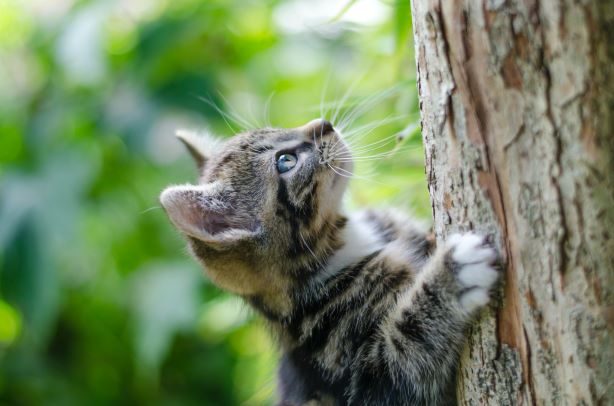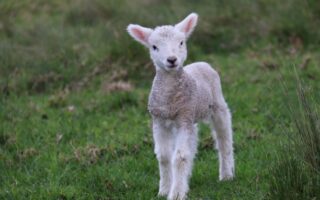A few weeks before my daughter Molly got married, I went with her for her final dress fitting. Molly’s best friend Betsy met us there and after the fitting the three of us had lunch together. Betsy is the daughter of one of my closest friends, Cathy, and because Cathy and I helped each other survive the busy years of raising children while trying to work, Betsy spent a lot of her childhood in my house. Betsy is and always has been a delightful person and I always enjoyed her presence in my house. One thing I knew about Betsy was that she really enjoyed eating frosted cinnamon Pop-Tarts and for this reason, I always tried to keep a box in the house. I had forgotten all about this until the day we had lunch after Molly’s dress fitting. Betsy and Molly were talking about their childhoods, and Betsy turned to me and said something along the lines of, “I remember so well the time I spent in your house, you always had cinnamon Pop-Tarts!”
I once had a cat named Thomas Merton. I am sorry to say that Merton the cat did not resemble Merton the monk, but was much more like Merton the rambunctious college student who was not yet baptized into the church. Merton the cat bit me twice. In both cases the bites were bad enough that I had to take antibiotics. At the beginning of a documentary I show to students, one of Merton’s editors tries to describe the power of Merton’s writing. He says, “Well, once you have been bitten by Merton, you go on reading everything he has ever written!” On occasion, before I show this documentary, I share my story about how the cat I had named Thomas Merton bit me twice and explain that I take this editor’s statement quite literally. I have had students reach out to me years after they graduate to share a Merton quote with me, or to tell me about an advertised Merton event. Then they say to me, “I always remember that story about your biting cat Thomas Merton!”
While these two stories may not seem to connect, what they have in common is this. I never imagined that I would be remembered for Pop-Tarts and a biting cat.
At my father’s funeral one of his friends told me a story about my father. A group of my parents’ friends attended an event in Bethlehem, Pennsylvania called Musikfest. They were having a wonderful time joyfully singing and dancing to Spanish music. When the music ended, my father threw his hands up in the air and yelled, “José!” They all broke into laughter and did not stop laughing for a long time. Of course, he meant to say Olé, but he had the words mixed up in his mind. I suspect that my father never imagined he would be remembered by this story, but this story captures my experience of my father so well. I have drawn warmth and comfort from it many times.
My father was not a smooth talker or a good dancer. He got his words wrong and his steps crossed, but he loved people and he would join gatherings with gusto, not afraid to let his vulnerability show. He would have been the first one to laugh at the mixed-up words, and his humble laughter was very endearing. So, while my father would not have chosen this story to be remembered by, the story brings him back to me.
I don’t know and don’t want to analyze how Pop-Tarts and a biting cat capture people’s experience of me. These stories from other people’s memories tells me something that is important though. Our impact on others may not come from the things we work the hardest to achieve, things like clean houses, hospitable environments, nurturing meals, carefully structured courses, or mastery of theological ideas. Our impact on others often comes through our vulnerabilities, through our mixed-up words, our awkward steps, our shared humanity. When we embrace our vulnerabilities, accept our weaknesses, and laugh at our missteps with others, we connect in ways we cannot foresee. In his celebrated essay, Fire Watch, Merton, the person not the cat, writes,
The things I thought were so important—because of the effort I put into them—have turned out to be of small value. And the things I never thought about, the things I was never able either to measure or to expect, were the things that mattered.
Fire Watch
Thomas Merton
I will continue to try hard to provide my visitors with a clean, warm, welcoming environment. I will keep trying to master theological ideas and find the best structure for my courses. Yet, I am increasingly aware that the things I want to change about myself, the things I wish were different, the mixed-up words and awkward steps that make me feel vulnerable and insufficient are the very qualities that welcome others and forge deep, lasting connections.













